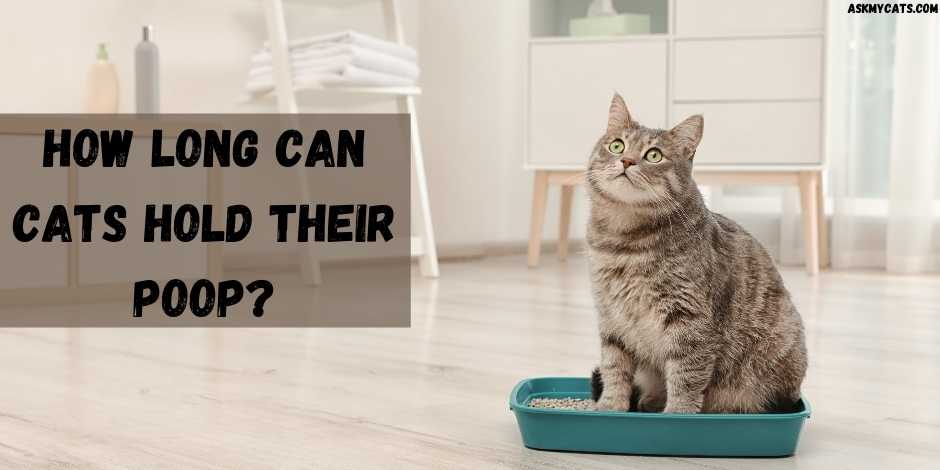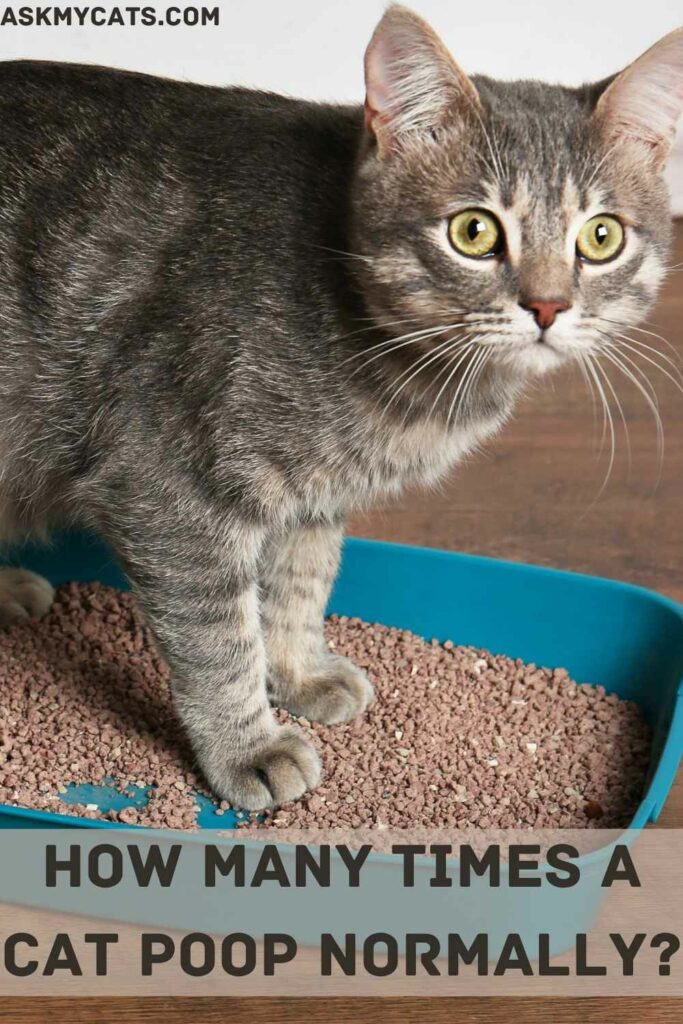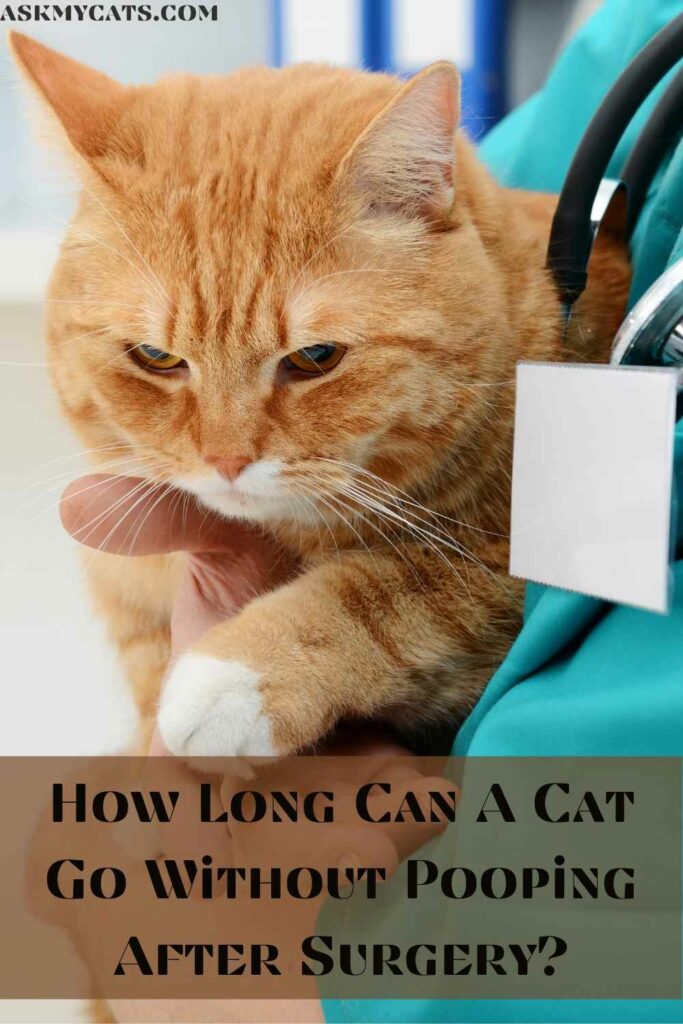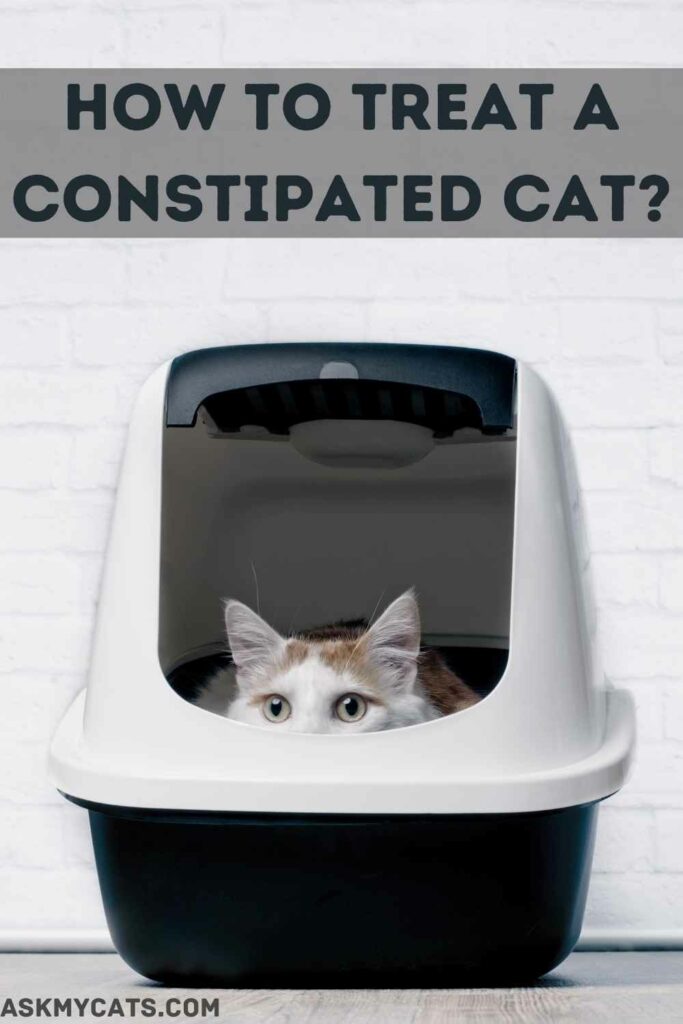The thought of traveling is always fun and dandy but add cats to the situation and it becomes a little tricky. Most of you traveling likely want to know how long can your cat hold their poop.
Cats can retain their feces for 24 to 48 hours on average, whereas kittens can hold it for 12 to 24 hours. However, because of other influencing variables, not all cats are able to hold on for as long. Keep in mind that any changes in the cat’s habit or external tensions may lead him to defecate or pee without warning.


Give Your Cat the Perfect Day
Get the Free Ebook!
Can Cats Hold Their Poop Overnight?
Yes, a cat can easily hold their poop overnight as they can at least hold their poop for 24 hours.
The majority of cats can retain their feces for 24-48 hours, and they have no trouble holding their poop overnight.
This should not, however, be used as an excuse to not have a litter box at home. Indoor cats should always have access to their litter box. Cats that haven’t pooped in more than 48 hours may be in danger.
If you’re taking your cat on a trip, make sure they have access to get out every 6 hours to relieve themselves. Please keep in mind that your cat’s excretion patterns are influenced by how stressful their travel is.
Travel is something that most cats detest. Put some absorbent padding in your cat’s carrier if you’re not sure if they’ll poop and want to be sure they don’t make a mess.
If your cat is not peeing also, you should check out this: How Long Can Cats Hold Their Pee?
How Many Times A Cat Poop Normally?
A healthy cat will poop once or twice a day under normal circumstances.

A cat will have a bowel movement at least once or twice a day in typical circumstances.
There are other aspects to consider, like the age of your cat, how active they are, their nutrition, and so on.
A healthy cat, on the other hand, will usually poop once a day.
Many cat parents are alarmed or concerned when they see their cat’s digestive system behaving abnormally.
Some cats defecate on a daily basis, while others poop once every two days. In terms of the cat’s health, this is perfectly normal and harmless.
Some cats with a high-fiber diet may need to poop more frequently, such as twice a day.
Cats who are deficient in fiber, have a poor diet, or have poor gut health may defecate less regularly.
Cats usually have two bowel motions every day. Unless the condition persists, anything more or less is nothing to be concerned about.
A healthy cat should defecate at least once every day, although this isn’t always the case.
Cats who eat more food, for example, may poop more frequently because their gut fills up faster, but cats who eat less food may take longer for their digestive tract to fill up and defecate every other day.
If your cat hasn’t pooped in more than 48-72 hours, you should keep an eye on him and his litterbox.
Is It Normal For A Cat To Be Constipated After Surgery?
Yes, it is quite normal for cats to be constipated after surgery due to several reasons such as medications and stress.
Constipation affects almost all pets to some degree. This is due to the use of specific pain drugs during your pet’s surgery.
It will usually go away on its own in a few days without the need for medical attention. Make an appointment with your veterinarian if your pet has been constipated for more than 4-5 days.
How Long Can A Cat Go Without Pooping After Surgery?
A cat can go without pooping for the first 3-4 days after surgery.

For the first 3-4 days after surgery, many cats will not have a bowel movement.
The following are some of the reasons why your cat may not have a regular bowel movement after surgery:
- It’s possible that your cat didn’t eat properly during their hospital stay or during the first few days at home.
- Your cat was fasted prior to surgery.
- Pain relievers may cause the digestive tract to slow down.
If your cat hasn’t had a bowel movement in 3-4 days after returning home, try giving canned pumpkin or canned meal.
If your cat is refusing to eat after surgery, try the following:
- Offer items with strong odors, such as tuna, meat, or canned goods.
- Try canned chicken, turkey, or beef.
- To give calories until its appetite returns, try substituting tuna juice, chicken, or beef broth for water.
- Try dry kibble first if your cat is only used to it.
- Petting or caressing your cat regularly will help them eat.
Also, check out Do Cats Pee And Poop At Night
Factors Responsible For Irregular Pooping In Cats
The factors responsible for irregular pooping in cats include age, diet, activity levels, change in routine, stress level, and health.
1. Age
Kittens will poop more than mature and senior cats as they have small bowels and less control. On the other hand, constipation is a common issue seen in older cats.
2. Diet
Some cat meals have laxative properties, causing diarrhea and more frequent bowel movements. Other foods can cause constipation and less frequent bowel motions by hardening stool.
Another factor to consider when it comes to diet is the amount of food consumed. If a cat eats too much, he will usually poop more regularly.
3. Activity Levels
Higher levels of activity result in a faster rate of metabolism and digesting. As a result, active cats poop more frequently than inactive cats.
If you notice that your cat is pooping less than usual, boost its playing time and interact with it more vigorously.
4. Change In Routine
Cats are creatures who stick to their routines. All it takes is a minor change in their routine to throw them off. Constipation in cats can be caused by moving, traveling, or even a change in work schedule.
5. Level Of Stress
Your cat’s bowel and bladder motions can be affected by stress. Stressed cats may suffer from either diarrhea or constipation.
Uncomfortable sounds like thunderstorms and fireworks, as well as unusual sights like a new family member, are common cat stressors.
A full-blown anxiety disorder can also cause stress. Obsessive-compulsive disorder (OCD), post-traumatic stress disorder (PTSD), social anxiety disorder (SAD), and separation anxiety are all examples of anxiety disorders.
6. Health
Your cat may poop unnaturally more or less regularly as a result of certain medical illnesses or injuries. This is especially true when it comes to diseases or injuries that affect the gut of the animal, such as intestinal blockage.
Also, find out how long can a cat go without using the bathroom
What Causes A Cat Not To Poop?
Causes behind a cat not pooping include:
- Kidney Problems
- Over-grooming, which results in a build-up of hair in the intestines
- Feline megacolon occurs when the colon expands to the point where its muscles can no longer squeeze, causing hard, dry stool to accumulate inside.
- Something blocking their colon, such as string or bones
- Diets that are deficient in fiber
- Colon problems, such as tumors or restricted passageways
- Back discomfort or difficulties with the spine
When Should I Be Worried Of My Cat Not Pooping?
You should be worried if your cat has not pooped for 3-4 days.
Other signs to be worried about include: –
- Excessive digestion of fur.
- If your cat has bloody feces.
- Refuses to eat or drink.
- If your cat is in discomfort and acting abnormally, consult a veterinarian.
- Vomiting in excess.
- The color and texture of the cat’s feces have changed.
- Constipation symptoms.
If your cat exhibits any of the following signs or behaviors, you should contact your local veterinarian right once for a consultation and additional tests. It’s better to be cautious than sorry, even if the situation isn’t always serious.
In severe circumstances, the cat may develop a blockage or a full intestinal obstruction, necessitating surgery if the problem is not treated.
Constipation is the most common diagnosis, which can be managed with a few dietary and water consumption modifications.
How To Treat A Constipated Cat?
Ways to Treat a constipated cat include increasing the fiber of its diet or changing the diet entirely.

If your cat is having trouble defecating or is constipated. There are a few things you can do to help.
Consult your veterinarian before attempting any of these procedures to ensure that they are safe and that they are suffering from constipation rather than a more serious digestive disease.
Constipation is characterized by dry, firm stools. In addition to stress, discomfort, and erratic conduct.
Constipation can be caused by eating too much dry food, not drinking enough water, having a chronic ailment, or being a sign of another medical problem.
Things you could do to cure constipation in your cat:
- Adopt a new diet.
- Increase your cat’s water intake.
- Increase the amount of fiber in your cat’s diet.
- Increase the amount of wet food in your cat’s diet.
- Make sure your cat stays in a healthy weight range.
- With your veterinarian’s approval, try a few over-the-counter laxatives.
- Supplements are also an option.
- Pumpkin puree can help your cat get more fiber in his diet. Once or twice a week, this should be provided.
- Ginger is a natural cure for stomach problems in cats. Add this to your cat’s feed-in little doses.
- Colace (docusate) is an excellent alternative to Miralax (PEG 3350), which is often used in cats to alleviate constipation. Never give your cat human medicine.
- Vetasyl is a psyllium supplement designed exclusively for dogs and cats. The pill can be opened and mixed with moist food.
- Probiotics are an excellent way to promote and manage gut bacteria, which will aid in the treatment of constipation.
Can Oil Help To Make A Cat Poop?
Olive oil and Castrol oil could prove helpful in making cat poop.
Olive Oil
Experts recommend one-half to one tablespoon of olive oil, or five to ten drops if using a dropper, for a mild case of constipation.
Toss some of the oil into your cat’s food. Do not force oil into the mouth of your cat. Use innovative methods to incorporate the oil into your cat’s diet.
You’d like to add olive oil to your cat’s diet without leaving any obvious signs. You can introduce this lubricant to your cat without them noticing by mixing it with food and treats.
If your cat has constipation on a regular basis, olive oil is not a good remedy because it can cause diarrhea. In this scenario, use tiny amounts that should have no negative side effects.
Castrol Oil
After exhausting all other therapies and medical procedures, your veterinarian may suggest using castor oil. Castor oil is a vegetable oil made from the seeds of the castor bean.
This oil is a strong laxative that also has anti-inflammatory qualities.
Castor oil is usually placed in the cat’s food bowl and mixed in with the cat’s food. The cat must consume all of its food and then drink new, clean water.
The oil helps to improve the moisture in the waste in the gut by lubricating, softening, and relieving the tightness of the digestive tract.
Frequently Asked Questions
Do Cats Need Litter Box At Night?
Ans. Yes, indoor cats must have access to the litter box at all times, to avoid complications.
How Can I Prevent Constipation In My Cat?
Ans. Constipation can be prevented by feeding your cat a high-fiber, low-threat diet with plenty of fresh water throughout the day, and making sure she gets plenty of activity. Hairballs, which can cause constipation, can be avoided by brushing your cat on a regular basis.
What will happen if constipation in cats is left untreated?
Ans. If your cat’s constipation is left untreated, she may develop obstipation- the inability to empty her colon on her own. The colon is stuffed with an uncomfortably large volume of excrement in this state, resulting in ineffective straining, fatigue, appetite loss, and sometimes vomiting. The colon of your cat may expand and the motility of the colon may be lost as a result of this.
Final Words
In most circumstances, cat constipation may be treated with the right therapy. The foundation of your care should be keeping an eye on your cat’s daily water consumption, keeping bowls and litter trays clean, and providing fresh water on a daily basis.
Regular bowel movements can also be encouraged by increasing physical activity and eating a well-balanced diet.
Track your cat’s litter box deposits and stool consistency at least twice a week at first, then weekly or bi-monthly after that.
Contact your veterinarian if you detect hard, dry stools, or if your cat is straining when defecating or exhibiting other constipation signs.
For any other questions, keep them right here at askmycats.com.
Interesting Read: Cat Not Pooping After Spay: Reasons & Solution
